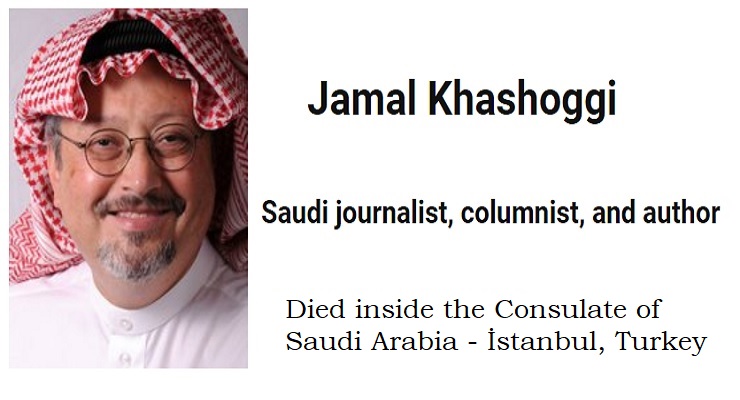
Khashoggi had a good sense of humor. He also had strong views on democracy and free speech in the Arab world.
In recent years, he spoke with VOA’s Edward Yeranian numerous times, expressing his views on democracy and many other regional issues and problems. He discussed the prospects of democracy in both Egypt and Libya during an interview in August.
YERANIAN: Could Libya become a democracy?
KHASHOGGI: “I think it can. I think it can if there was an American administration that has an interest and a clear plan to do that, they can do it. But right now, there is no plan. This administration will not do it.”
Some of Khashoggi’s detractors have accused him of having ties to the Muslim Brotherhood, an Islamist group that is outlawed in Saudi Arabia, the United Arab Emirates, and Egypt.
Washington Post commentator David Ignatius defended Khashoggi in an October 12 op-ed piece, writing that he supported the Brotherhood during his youth, but that by the mid 1990s, he “was moving towards his mature belief that democracy and freedom were the Arabs’ best hope of purging the corruption and misrule he despised.”
Khashoggi discussed the prospects of one day establishing an Arab NATO along the lines of its European counterpart, but he was profoundly skeptical.
“Why should we have an Arab NATO? To fight what? The Iranians? We have problems from within,” he said, “within our system, we have more serious problems.”
During a conversation with VOA in the fall of 2017, Khashoggi expressed concern about the ambitious reforms being undertaken in Saudi Arabia by Crown Prince Mohammed bin Salman. He said he was “not optimistic about the reforms,” but that he “would still like to be optimistic … since everyone will suffer if they fail.”
He complained that “change is being done in very narrow circles [and that] ordinary people are not feeling engaged.”
Discussing the more than three year-old Saudi-led military effort to drive Yemen’s Houthi militia from power, Khashoggi also criticized the Iranian-backed Zaidi-Shi’ite group.
“We should remember that the Houthis are not there by popular demand,” he said. “The Houthis [came] to power in Yemen by force, and they will stay by force. And it seems that the only way to fight them out is by force.”
Khashoggi expressed support, however, for a new democratic system in Yemen, as he did for other Arab countries.
“[At] the same time, Saudi Arabia also needs to believe truly in democracy for Yemen,” he said. “I think the Saudis are also reluctant, as much as the Iranians, about democracy. Each country wants to impose its blueprint in Yemen.”
Repeating a refrain that was dear to him, Khashoggi lauded the 2011 Arab Spring, insisting it had “brought positive forces to the forefront in Yemen and other Arab countries.”
He said it is “important to go back and reassert those ideas.”
Leave a Reply